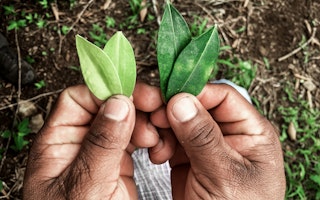In Latin America, Drug Policy Is a Human Rights Issue
By Heloisa Griggs & Angelica Zamora
For the first time ever, a key human rights body in the Americas has begun studying the impact of drug policies on human rights.
In a hearing before the Inter-American Commission on Human Rights, 17 organizations from across the Americas—including Open Society grantees Conectas, DeJusticia, and the Washington Office on Latin America, among others—argued that the war on drugs has worsened violence, strained criminal justice systems, and reinforced hardline security policies.
The commission’s effort is another step forward in the drug policy reform debate in Latin America. In some countries, this debate is well underway. In others, it is just beginning.
The problems with current drug policies are well established and common across the region. The militarization of efforts to counter drug trafficking in countries such as Colombia and Mexico has fueled violence and resulted in serious human rights violations by armed forces and law enforcement. The eradication of illicit crops has provoked clashes between armed forces and farmers, environmental damage due to aerial fumigation, and abuses against rural populations in Bolivia, Colombia, and Peru, among others.
On top of that, criminal approaches to counter illicit drugs have deepened economic inequality and unfairly targeted young people from low-income backgrounds.
Laws making substances illicit have expanded rapidly in South and Central America, along with an increase in the severity of sentences for drug offenses. As part of the war against drugs, law enforcement agencies have been given wide discretion to detain individuals, often disproportionally targeting members of vulnerable groups, such as youth, immigrants, and sex workers.
In fact, the overall number of women imprisoned for drug offenses remains small compared to men. But the number of women in prison has dramatically increased, and most are in prison for drug-related charges.
Large numbers of individuals are arrested for possessing drugs for personal consumption in many countries across the region. Paradoxically, decriminalization of small amounts of drugs in Brazil has caused possession of these amounts to be characterized as drug trafficking.
Many private “treatment” centers violate human rights by holding individuals against their will and torturing those detained in the centers.
While the human rights movement in Latin America has long addressed the consequences of the drug war in the form of abuses by military forces and law enforcement, lack of due process, and over-incarceration, it has largely shied away from the taboo topic of drug policy reform. Changing drug policy was generally seen as a marginal issue outside the scope of the human rights agenda.
But the rapid advance of the drug policy reform debate in Latin America has generated significant interest by human rights advocates. Involving the human rights movement in drug policy reform will expand the constituency for reform and bring a new set of perspectives and arguments to the debate.
The Inter-American Commission hearing is a step forward. It creates a path to focus on the impact of drug policy on human rights through dialogue among government and civil society representatives, expand participation in upcoming regional and global debates, and explore alternatives to drug criminalization that are compatible with international human rights standards.

Heloisa Griggs is acting executive director for Open Society–Latin America and the Caribbean.
Angélica Zamora is a program officer at the Latin America Program.

